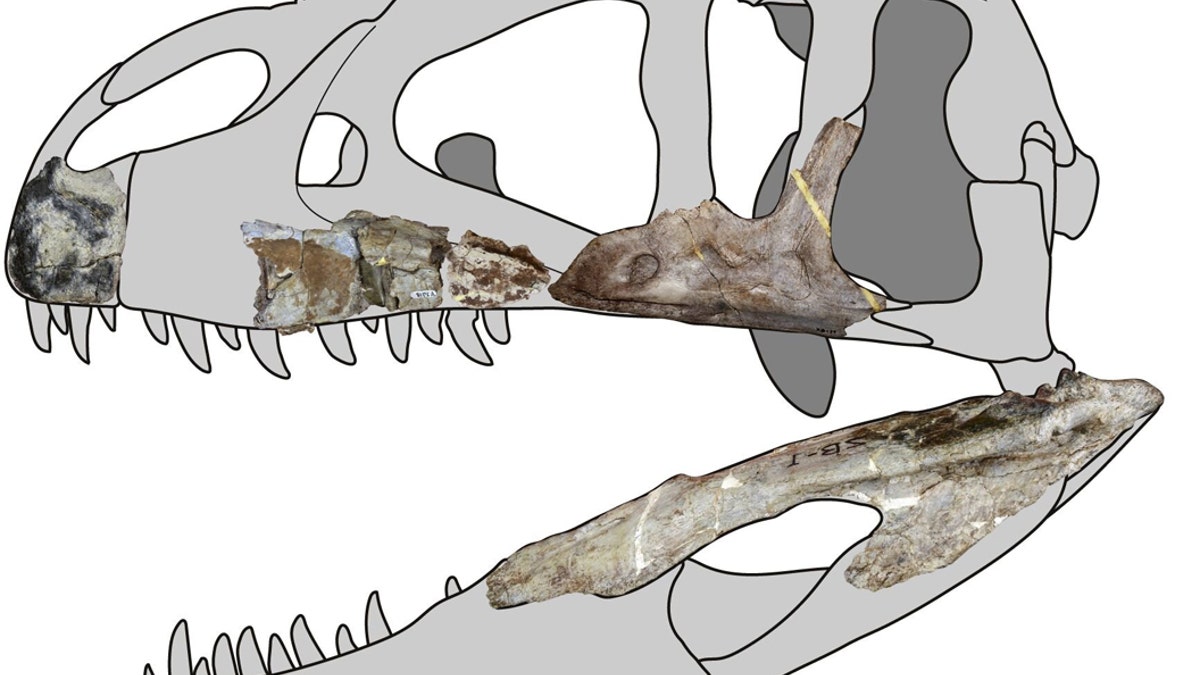Fox News Flash top headlines for Oct. 10
Fox News Flash top headlines for Oct. 10 are here. Check out what's clicking on Foxnews.com
My what big teeth you have — the better to eat you with.
Fossils of a newly discovered massive, carnivorous dinosaur that belonged to a group of "shark-toothed" dinosaurs have been found in Thailand. Known as Siamraptor suwati, the apex predator is estimated to be more than 26-feet long and weighed at least 3.5 tons, according to Reuters.
"Moreover, the phylogenetic analyses revealed that Siamraptor is a basal taxon of Carcharodontosauria, involving a new sight of the paleobiogeographical context of this group," the study's abstract reads. "Siamraptor is the best preserved carcharodontosaurian theropod in Southeast Asia, and it sheds new light on the early evolutionary history of Carcharodontosauria."

Siamraptor skull reconstruction. (Credit: Chokchaloemwong et al., 2019)
T. REX HAD A MASSIVE, STIFF SKULL THAT IT USED TO DEVOUR ITS PREY
According to a statement announcing the findings, "the skull, backbone, limbs and hips of at least four individual dinosaurs were identified."
“The teeth of carcharodontosaurs, including Carcharodontosaurus, exhibit characteristic undulations of the surface along the margin of the thin, blade-like ‘shark-tooth,’" paleontologist Soki Hattori of Fukui Prefectural University said in an interview with Reuters. "This feature is also observed in Siamraptor’s teeth.”
Siamraptor is a member of a group of dinos called carcharodontosaurs. The most well-known member of the group is Carcharodontosaurus, Latin for “shark-toothed lizard.” It is estimated to have reached 45 feet in length and weighed 18,000 pounds.
By comparison, the Tyrannosaurus rex, perhaps the most fearsome predator to ever walk the Earth, may have reached up to 40-feet in length and may have weighed up to 15 tons.
MINUTE BY MINUTE ACCOUNTS OF HOW ASTEROID THAT WIPED OUT THE DINOSAURS DEVASTATED EARTH
The research has been published in the scientific journal PLOS One.
